Is Vision Therapy a Hoax?
Vision therapy has been a controversial topic for many years.
Vision therapy is not a hoax; however, its effectiveness can vary depending on the individual and the specific condition being treated. While vision therapy has been shown to be effective for some visual issues, particularly those related to eye coordination and focusing problems, it’s essential to consult with a qualified optometrist to determine if vision therapy is appropriate.
What is Vision Therapy?
Vision therapy, also known as orthoptics or vision training, is a non-surgical and customized treatment program designed to improve visual skills and correct certain eye conditions. It involves performing various exercises and activities under the supervision of an optometrist or trained therapist.
The goal of vision therapy is to develop better control over eye movements and better coordination between the eyes. This leads to clearer and more comfortable vision. The treatment is often used for children with “lazy eye” or amblyopia, for eye teaming issues such as strabismus (crossed eyes), for focusing problems like convergence insufficiency, as well as for other visual disorders.
How Does Vision Therapy Work?
Vision therapy uses a variety of techniques and exercises to improve the functioning of the eyes and brain. The techniques employed depend on an individual’s circumstances. Common exercises include using special lenses or prisms, performing eye tracking or fixation exercises, and engaging in computer-based visual tasks.
The length of a vision therapy program can also vary depending on the severity of an individual’s condition as well as their progress. Typically, sessions are held once or twice a week for several months, with homework exercises to be done at home between appointments.
Who Can Benefit from Vision Therapy?
Vision therapy can be beneficial for people of all ages, but it’s most commonly used for children who have vision-related learning difficulties or other eye conditions. It can also help adults who experience visual problems due to brain injuries or other health conditions.
Some common conditions that may benefit from vision therapy include:
- Amblyopia (lazy eye)
- Strabismus (eye turn)
- Convergence insufficiency (difficulty maintaining focus when reading)
- Double vision
- Eye movement disorders
- Visual processing disorders
The Importance of Early Intervention
It’s important for children who need vision therapy to receive it as early as possible to have the best chance of success. This is because the brain is still developing during childhood, and is more adaptable and responsive to new information and experiences.
If a vision problem goes undiagnosed and untreated in childhood, it can lead to learning difficulties, poor academic performance, and even behavioral problems. Therefore, early intervention through vision therapy can not only improve visual functioning but also positively impact overall development in children.
Advantages of Vision Therapy
Vision therapy focuses on training and improving eye-brain connections, which can lead to long-term improvements in visual abilities.
Additionally, vision therapy is a non-invasive and drug-free approach to treating vision problems, making it a safe option for individuals of all ages. It also doesn’t require downtime or recovery time, allowing patients to continue with their daily activities while undergoing treatment.
How to Prepare for Vision Therapy
Before beginning vision therapy, it’s important to have a comprehensive eye exam to diagnose any underlying issues. This will also help identify the specific areas of vision that need to be addressed during therapy.
It’s also beneficial for parents or caregivers to educate themselves about their child’s vision problem and the goals of vision therapy. This allows parents to play an active role in supporting their child throughout the treatment process by attending sessions, practicing at home, and providing encouragement and positive reinforcement.
Professional Guidance & Support
Vision therapy is a highly individualized treatment that is tailored to each person’s specific needs. It should always be performed by a trained professional, such as an optometrist or who specializes in vision therapy.
A trained professional will design a personalized treatment plan based on their patient’s visual deficits and progress across therapy sessions. They will also provide guidance and support along the way, making adjustments as needed to ensure optimal results.
Transform Your Vision at Professional Eye Care Centers
Vision therapy is a highly effective treatment for various visual conditions and learning difficulties. Through targeted exercises and activities, it aims to improve eye-brain connections and enhance visual functioning. With early intervention and commitment to the program, individuals can see significant improvements in their visual abilities and quality of life.
At Professional Eye Care Centers, we’re dedicated to providing comprehensive vision care for patients of all ages. Our team of experienced professionals offers specialized vision therapy services, utilizing the latest techniques and equipment to help patients achieve their visual goals. If you or a loved one is struggling with a visual condition, we encourage you to schedule an appointment with us to learn more about how vision therapy can help.




